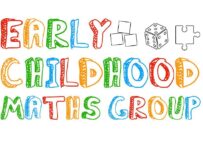An environment for maths talk
The setting environment can offer enormous support for mathematical talk. Reggio Emilia identifies the environment as the third teacher, working with the child and adult (their other two ‘teachers’) to support learning. It is important to take account of children and their mathematical interests as we construct enabling maths-talk environments.

A maths-talk environment is about much more than the physical space and resources. The emotional and social environment created by adults has an important part to play in developing positive attitudes towards mathematics. A positive emotional environment is one where maths-focused curiosity is encouraged, where everyone can notice something mathematical and where children are happy and motivated to explore, problem-solve and communicate their own ideas and discoveries.
Positive adult-child relationships support children to feel safe to make suggestions or mistakes and to feel valued in the mathematical thinking that they share. Through relationships, adults can foster a sense of enjoyment of mathematics, for example when exploring new words and trying new things. Adults also need to be sensitive when modelling and extending children’s mathematical thinking and offering appropriate challenge, being careful to maintain enjoyment. This impacts on children’s attitudes to maths and on their sense of satisfaction and achievement.
